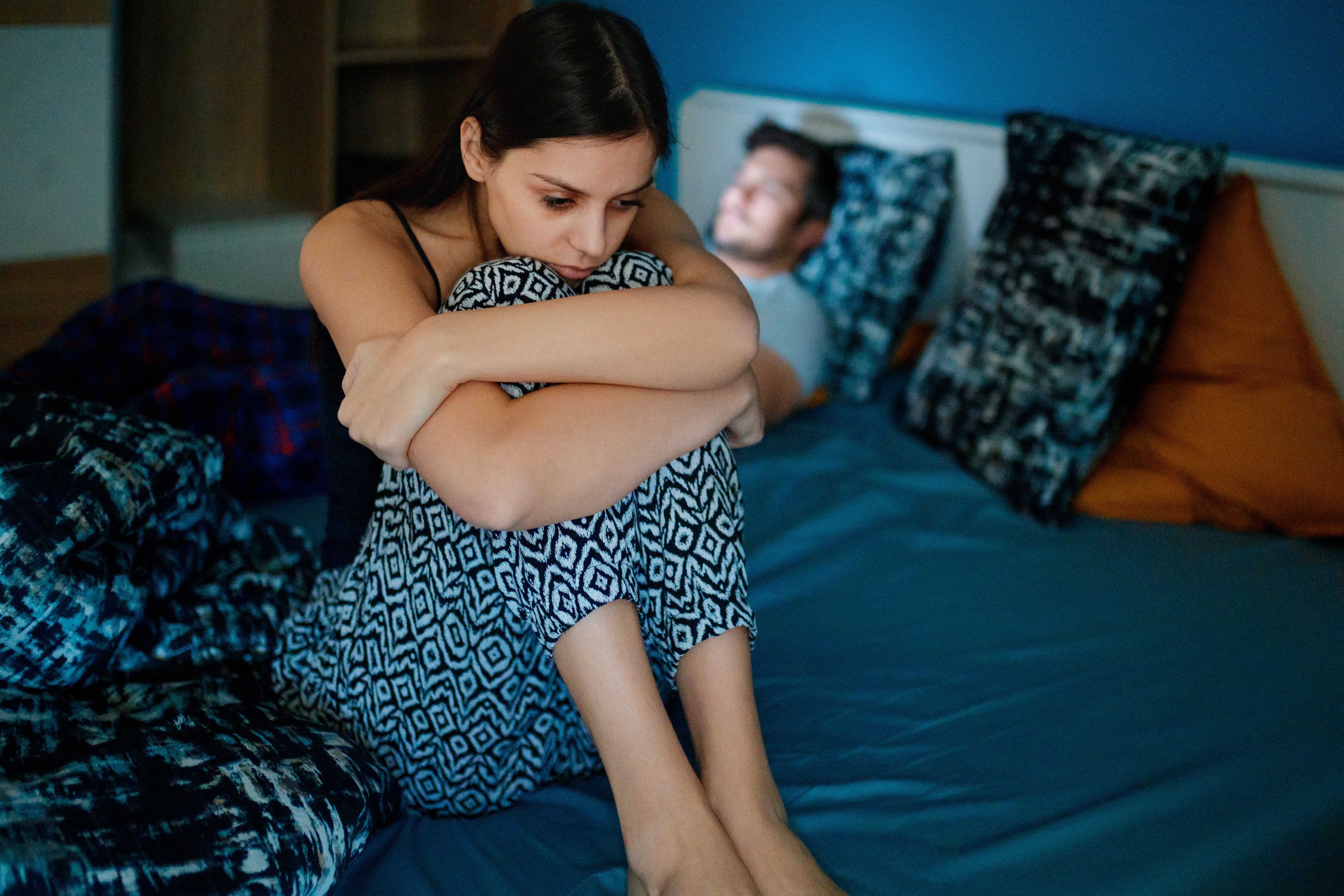Ever had bad sex? You’re not alone – and the effects can last for years
Many of us are carrying around toxic internalised messages borne out of early sexual experiences. Often we don’t even realise until they show up in our sex lives or through anxiety


Few among us could claim to be a stranger to bad sex. Whether it leaves us dissatisfied or disconnected, pokes our insecurities or sparks shame, most of us can relate to feeling disappointed by a sexual encounter. Indeed, one in eight women and one in 20 men say they lack enjoyment during sex. It’s easy to speculate as to why. We might blame poor technique, a patchy understanding of anatomy, or the orgasm gap. But what if bad sex was pattern-forming? What if crap sexual experiences early on were setting the stage for years of bad sex?
While researching and reporting on bad sex for the new series of my sex and relationships podcast, The Second Circle, I heard countless stories of how unpleasant “first times” and uneasy early encounters had taken years – and even decades – to shake off.
One of the people I spoke to was Fran Bushe, a comedian and writer whose book My Broken Vagina describes her mission, throughout her twenties, to get to the bottom of why sex was so bad for her. Like around one in 13 British women, Fran experienced pain during sex. For a long time she ignored it, hoping it would go away. She now believes this exacerbated the problem. While her early experience might have been painful for straightforward reasons such as insufficient arousal, over time it became entrenched. Lack of pleasure and arousal became a self-fulfilling prophecy as she went into every sexual encounter anticipating pain.
According to clinical psychologist and sex and relationship therapist Dr Amani Zarroug, many of us are carrying around toxic internalised messages borne out of early sexual experiences. Often we don’t even realise until they show up in our sex lives or through anxiety.
Take L*, one of the interviewees featured on the podcast. For decades she’d put her inability to orgasm down to bad luck, to being what she calls “a tough gig”. But recently, a distressing revelation about her first sexual experience has shed light on her struggle.
At the age of 13, her boyfriend coerced her into sex, in what she believed at the time to be a normal relationship experience (and statistically speaking, it’s not uncommon). At the time, she says, it felt like a completely reasonable thing for him to expect and for her to “give”. It was only in her late thirties when she began to see a sex therapist that she began to acknowledge the impact of this experience.
“For years, my survival mechanism was to think that the fact that this boy wanted to do this to me meant that it was OK, and that I had to get over it,” she said. “It definitely impacted my relationship with my body in that my sexuality kind of wasn’t my own. I’ve had sex out of politeness and obligation a lot of time. And that is probably largely to do with my first sexual experience.”
To keep up to speed with all the latest opinions and comment, sign up to our free weekly Voices Dispatches newsletter by clicking here
Of course this won’t come as any surprise to survivors of abuse. We know that trauma stays with us and can show up in our bodies in a myriad of ways, as Bessel van der Kolk showed in his eye-opening book, The Body Keeps The Score.
But even without direct experience, formative messages around what sex is and what our role in it is supposed to be can set the stage for bad sex. In researching this series, I spent time reading the accounts on the sexual harassment complaint platform, Everyone’s Invited.
I was astounded to discover how many I could relate to, either because they happened to me, or because they happened to school friends of mine. Looking back, I see only too well how my coping strategy was to detach and to treat these experiences as a bit of a joke. I won’t pretend my struggle was anything close to L’s but despite becoming sexually active at 16, I didn’t have an orgasm with a partner until I was 26. Not because I didn’t know how, but because I was too busy pretending not to care.
We often brush off bad sex as the luck of the draw, just “one of those things”. But I’ve learnt that what might start out as a problem of technique, inexperience or lack of attention to someone’s pleasure can become something bigger if we don’t address it. I hope that in making this podcast series, I can help people start to do precisely that.
Hear the full stories in The Second Circle, Series Four: ‘BAD SEX’– out now on all podcast platforms.
*Name withheld
Join our commenting forum
Join thought-provoking conversations, follow other Independent readers and see their replies
Comments
Bookmark popover
Removed from bookmarks